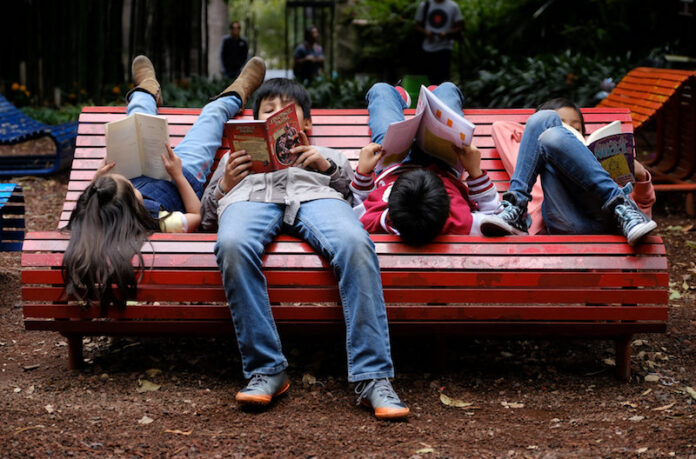Nearly 6 per cent of British children and teenagers do not have a book of their own at home, according to a report by the National Literacy Trust. — Reuters pic
LONDON, Nov 19 — Books are often given to children to help them learn and develop, but some kids are missing out. A new report suggests that more than 400,000 British children and young people do not have a single book in their homes. This could hinder their educational, social and economic prospects.
The National Literacy Trust surveyed 34,435 children and teenagers about their reading habits between January and March 2021. The British charity found that nearly 6 per cent of them do not own any books. Unsurprisingly, this trend is particularly marked among children receiving free school meals (9.2 per cent). Teenagers don’t seem to have much of a book collection either, with nearly 20 per cent of 14- to 18-year-olds saying that they don’t have their own books at home, compared with 8.2 per cent of 8- to 14-year-olds.
Although the UK has many public libraries, having books of their own is essential to fostering a love of reading in young children. Children who have received books as gifts are twice as likely as their peers to say they like to read. Indeed, almost a third of them read every day, compared to only 13.5 per cent of children and teenagers who do not own any books.
While this taste for reading can influence the future prospects of young people, it is also beneficial to British society as a whole. Indeed, a recent study by British Land suggests that unlocking the potential of reading for pleasure in children could boost the UK’s GDP by GBP4.6 billion (about RM25.9 billion) in less than 30 years.
But the economic argument isn’t the most important factor for Jonathan Douglas, chief executive of the National Literacy Trust. Books are, first and foremost, a powerful tool for promoting social justice. “For children from less financially secure homes, a book of their own (and particularly one that matches their interests and reading ability), may be a powerful way to increase reading enjoyment, frequency and learning. So reading for pleasure needs to be seen as an important tool to overcoming social inequity and not something that’s just for financially better off families,” he said in a statement. — ETX Studio


